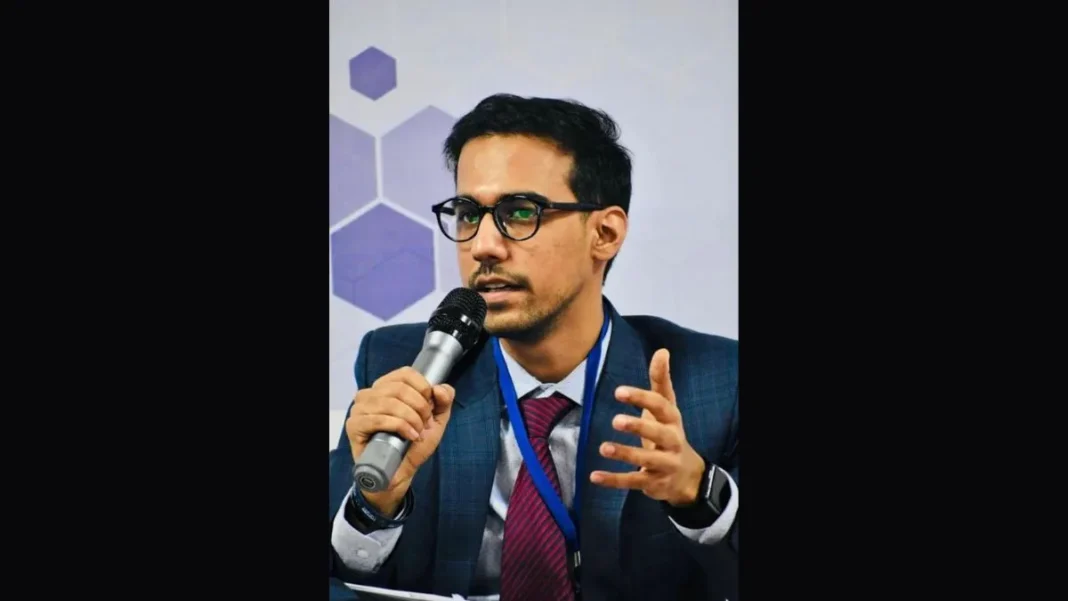By Pratik Gauri The one thing that the recent pandemic brought us was the normalization of the concept of remote work. It has indisputably hastened the pace of work digitization, rapidly transforming how we work. Additionally, with technological advancement, businesses are also focusing on acquiring qualified, future-ready professionals to keep up with changing business conditions from across the globe.
India, with a massive youth population, is set to become the world’s largest workforce by 2027, with over a billion people between the ages 15 and 64. It is, therefore, essential that we come up with a plan to deliver Web3 education to prepare for becoming an even bigger force in tech innovation. India’s rapid adoption of new-age technologies, its growing startup ecosystem, and large-scale digitally skilled talent potential is cementing the country’s position in the global Web3 landscape.
To continue our dominance in the crypto tech and Web3 space, India needs to invest heavily in Web3 education and training to ascertain the enviable position and the ability of India’s skill development. Despite the rising workforce and changing market and organizational needs, training youth with adequate, relevant, and job-ready skills for the digital economy remains a significant challenge. According to the World Economic Forum, by the year 2025, as many as fifty percent of all existing employees will require some reskilling if we wish to avoid over 2.
5 million employment opportunities in India being unfilled. There is also a massive shakeup happening in how innovators are delivering their talents to the marketplace. The monumental shift caused by Web3 will be the world shifting from a “value capture” economy to a “value creation” economy.
This will require a new set of rules, which democratizes access to resources for creators and makes value creation as rewarding as capturing value. This means a direct relationship between the human capital and the consumers of its creation. This, in turn, would mean most resources except intellectual and human capital will become commodities.
Human capital as a producer of knowledge-based assets and creative industries will become the world’s primary driver of economic growth. Technology innovation has given birth to new industries such as FinTech, AI, and Supply Chain Management. The requirement for skills has been ever-expanding, but it is particularly true for Web3 knowledge and skills.
Hence, more than ever, there is a need to manage tech education for the masses. Both the government and education platforms are stepping forward to ensure that learners have access to tech-enabled learning approaches. Along with that, a new paradigm of “Learn-to-earn” is also emerging that requires the global availability of selected curricula through the use of technology and digital learning.
Additionally, with a thorough understanding of the changing job landscape, both students and professionals recognize the need to upskill to thrive in this competitive market. This creates a novel opportunity for the tech education marketplace and the government to make the resources accessible to those who are looking for relevant programs that can assist them in excelling in their careers and having a secure future. Upskilling can also allow rural populations to thrive economically.
With the government’s massive effort to provide internet access to remote areas of India, developing a digitally savvy tech workforce is a sound economic policy. Web3 technologies will not only spur gargantuan growth to skilled labor in India, with increased security and visibility to tracking complex variables related to sustainability and ethical sourcing but the blockchain is also set to help procurement organizations in all industries lower their costs and improve performance while driving greater value for their companies. The oncoming phenomenon of Decentralized Autonomous Organizations, or DAOs, will further shift the use of human capital toward creative industries and with creative market-driven employment structures that will allow employees to have the freedom to work however they want, anywhere and anytime.
Having discretion on when, where, and how you do your work can reduce instances of unproductivity, bring out the creativity in members, and potentially increase the quality of their work. It is important to recognize the local need for a technologically equipped workforce will soon exceed the workforce that India provides to the world. In 2021, India recorded 44 new billion-dollar technology companies, compared with 10 in 2020 and 9 in 2019.
Given that we are growing in quadruples in tech companies, with expanding sectors from financial, agricultural, and educational technology to life-sciences companies, games companies, and online marketplaces, it is essential that we continue to grow our tech workforce to meet the oncoming gargantuan demand for web3 workers. Last quarter, I was invited by the Government of India’s NITI Aayog to engage with some of the top mentors in Indian schools and share our mission of scaling blockchain and web3 education. It was encouraging to see the interest among mentors and students in blockchain.
I think most people today realize the need and importance of constantly learning and upskilling. In conclusion, there is a massive need and ample demand for India to reskill, upskill, and train in web3 technologies. This will not only impact our economic future but will make us into a well-trained modern tech nation that will be the envy of the world.
The author is co-founder, CEO, 5ire Follow us on Twitter, Facebook, LinkedIn.
From: financialexpress
URL: https://www.financialexpress.com/business/blockchain-public-private-partnership-for-driving-web3-0-education-to-the-masses-3104741/



